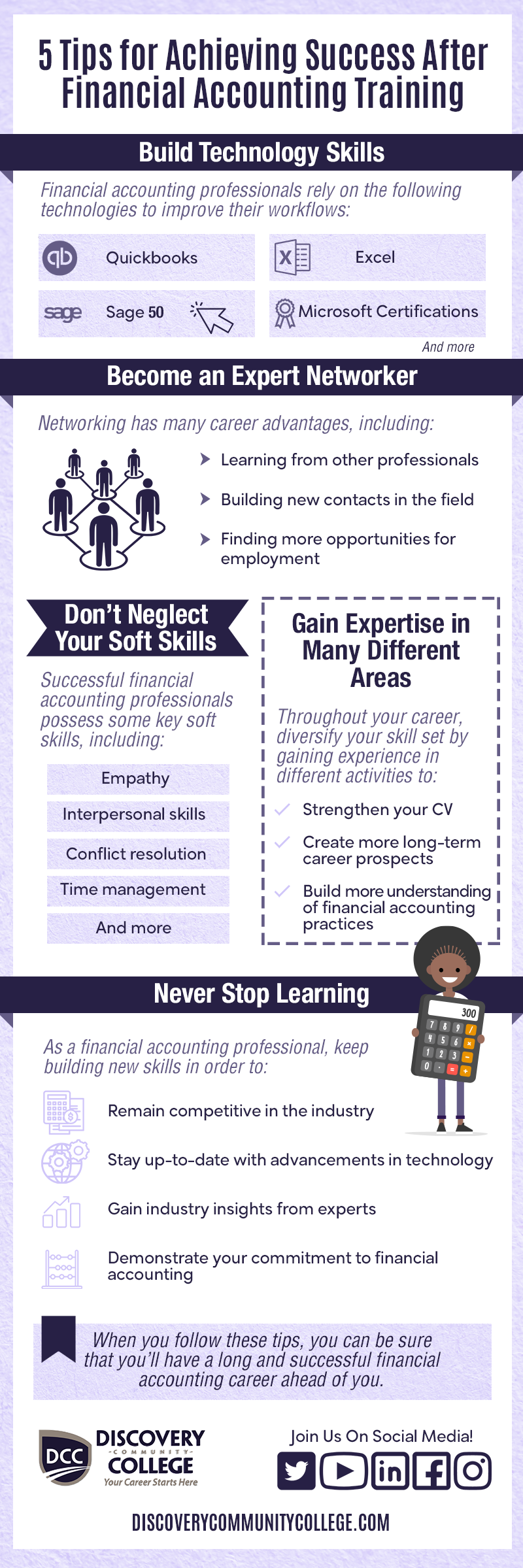
Are you looking for ways to secure a long and successful career in the financial accounting field? As a financial accounting professional, you’ll be performing general accounting and bookkeeping tasks, utilizing your knowledge of accounting and financial practices or technology. Once you complete your financial accounting training, you’ll be qualified to pursue a career as a Bookkeeper, a Payroll and Benefits Administrator, an Accounts or Receivable Clerk, and more. When it comes to succeeding in the realm of financial accounting, you’ll go far when you put some effort into building the right skills, knowledge, and characteristics.
Whether you pursue a career in a small business, real estate office, corporation, government agency or even contract your work independently, by following a few tips, you’ll enhance your professional success. In the infographic below, you’ll find a few tips that will help you achieve success throughout your financial accounting career.
5 Tips for Achieving Success After Financial Accounting Training
Build Technology Skills
Financial accounting professionals rely on the following technologies to improve their workflows:
- Quickbooks
- Sage 50
- Excel
- Microsoft Dynamics
- And more
Become an Expert Networker
Networking has many career advantages, including:
- Learning from other professionals
- Building new contacts in the field
- Finding more opportunities for employment
Don’t Neglect Your Soft Skills
Successful financial accounting professionals possess some key soft skills, including:
- Interpersonal skills
- Conflict resolution
- Empathy
- Time management
- And more
Gain Expertise in Many Different Areas
Throughout your career, diversify your skill set by gaining experience in different activities to:
- Strengthen your CV
- Create more long-term career prospects
- Build more understanding of financial accounting practices
Never Stop Learning
As a financial accounting professional, keep building new skills in order to:
- Remain competitive in the industry
- Stay up-to-date with advancements in technology
- Gain industry insights from experts
- Demonstrate your commitment to financial accounting
When you follow these tips, you can be sure that you’ll have a long and successful financial accounting career ahead of you.


